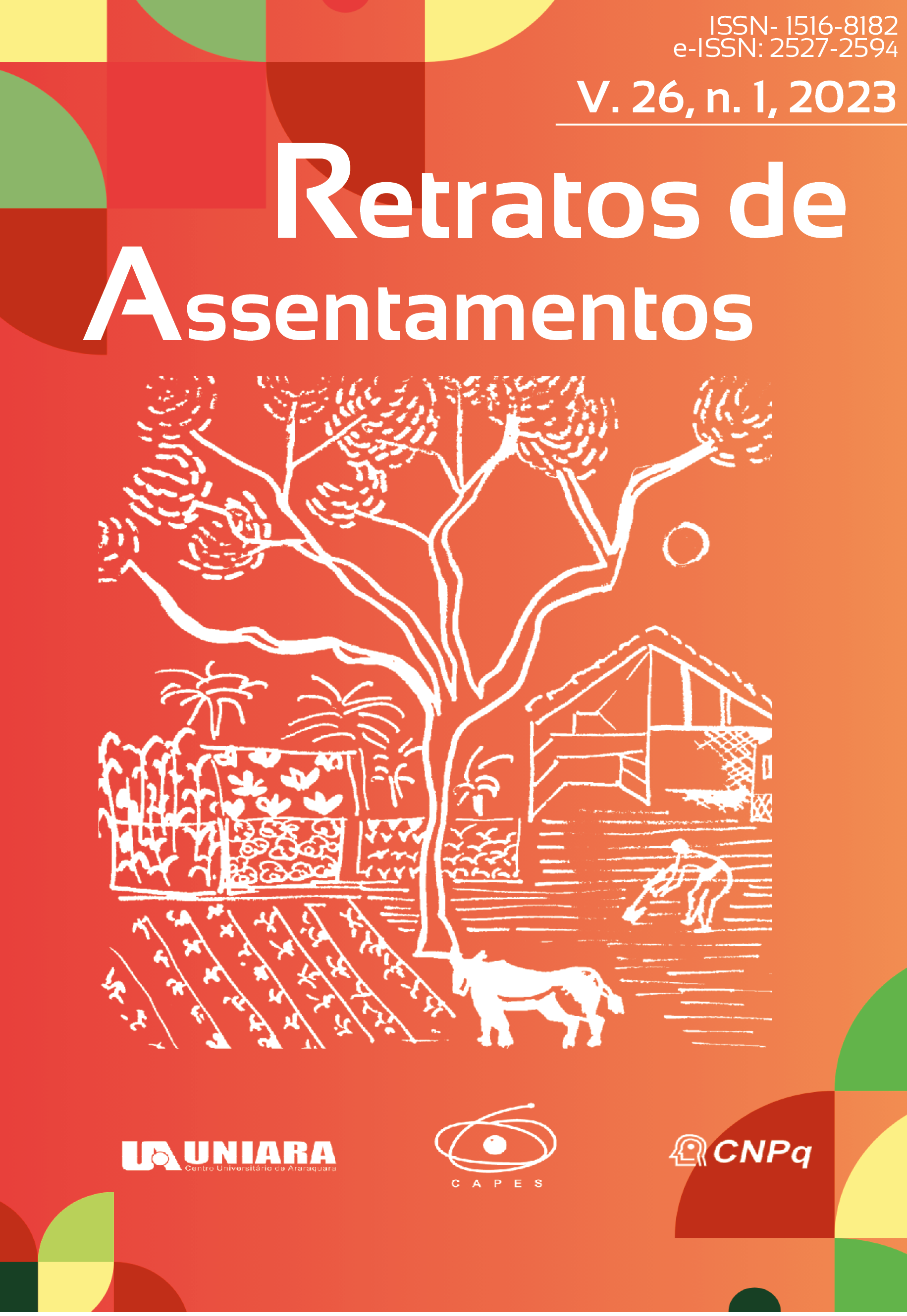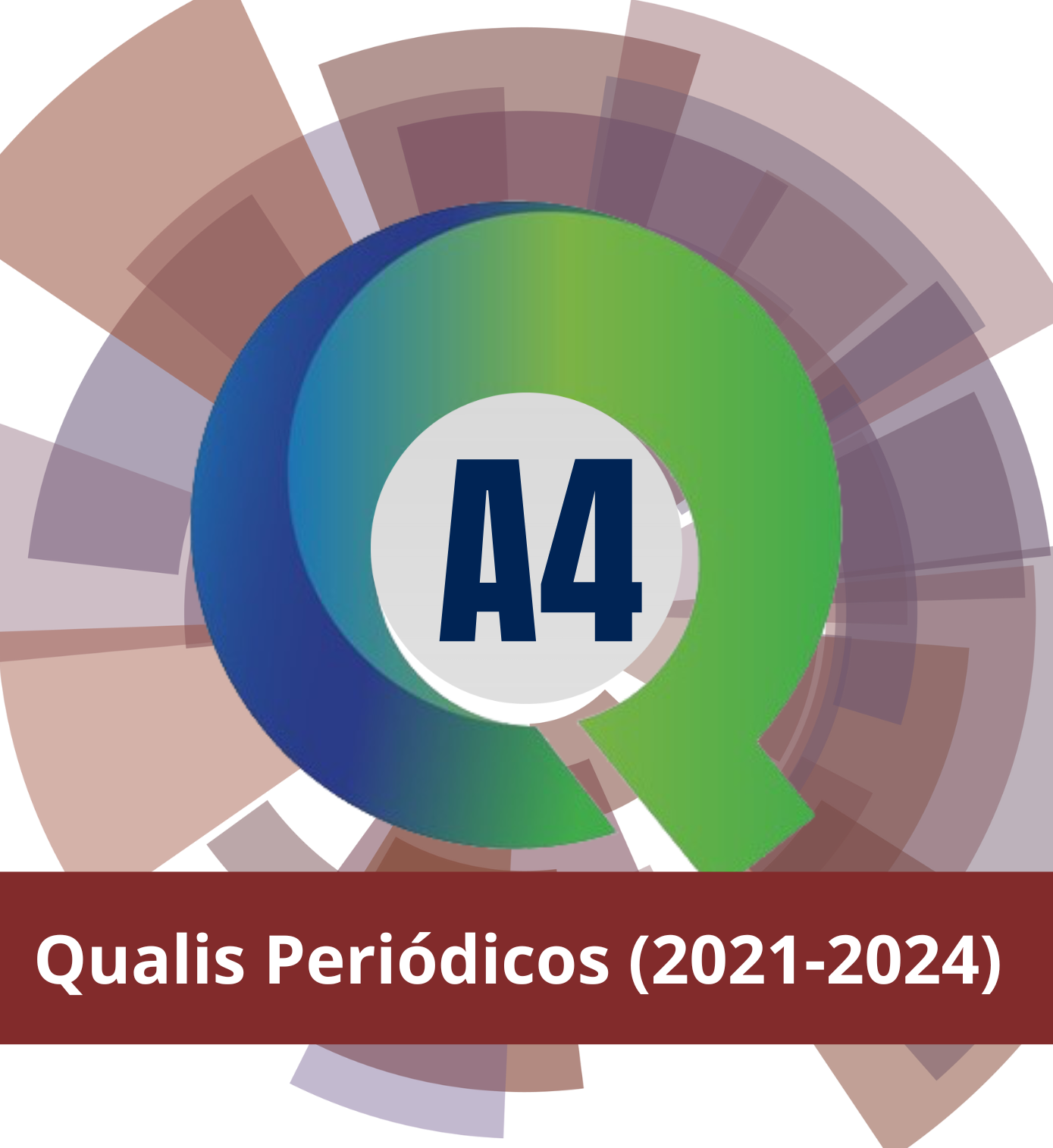A espacialidade do envelhecimento em memória autobiográfica no Pontal do Paranapanema
DOI:
https://doi.org/10.25059/2527-2594/retratosdeassentamentos/2023.v26i1.544Resumo
O objetivo principal desta texto é compreender como se constrói a
experiência do envelhecimento rural e identificar as estratégias de resistência e a
espacialidade desenvolvidas pelos idosos no contexto de luta, conquista e formação
do acampamento Gercina Mendes e do assentamento Água Sumida. Discute-se
também como o envelhecimento é visto na geografia e sua relação com as dimensões
espaciais e sociais dos sujeitos. Partindo de um referencial teórico para a geografia do
envelhecimento, propomos uma compreensão de como os conceitos espaciais
desempenham um papel no exame do envelhecimento em áreas de conflito agrários,
justificando uma análise relacional, com foco em múltiplos sujeitos sociais, e para além
do mundo dos adultos. Para tanto, tomamos como eixo central a relação entre
envelhecimento e espaço na trajetória de pessoas idosas em situações de
acampamento e assentamento no Pontal do Paranapanema – São Paulo. História oral,
reconstrução de memórias e uso do caderno de campo foram estratégias para geração
de dados de envelhecimento. Nossa tese levanta a hipótese de que o envelhecimento
constrói espaços específicos relacionados ao uso espacial e temporal em
acampamentos e assentamentos, onde o trabalho é a base para que os idosos do
meio rural percebam a velhice. Esses sujeitos produzem espacialidade por meio de
seus corpos, práticas e relações sociais espacialmente relacionadas. Casas e lotes
são entendidos como espaços de memória e trabalho, e a terra como meio de
reprodução da vida. De modo geral, o trabalho apresenta as múltiplas possibilidades
de se estudar a idade por meio da geografia, buscando ampliar e aprofundar a
compreensão do envelhecimento a partir das dimensões dos sujeitos sociais e do
espaço, aqui entendido por meio de princípios de indissociabilidade e
multidimensionalidade.
Referências
ADES, César. A memória partilhada. Resenha. Psicol. USP. 15 (3), São Paulo, 2004.
ALCÂNTARA, Adriana de Oliveira et al. Velhice e espaço rural: (re) desenhos dos
discursos. Revista Kairós Gerontologia, 18(2), pp. 209-226. ISSN 2176-901. São Paulo
(SP), Brasil: FACHS/NEPE/PEPGG/PUC-SP, 2015.
ANDRADE, Celeste Maria Pacheco de. Ministério Público Militar: o discurso da Justiça
Militar através das fontes orais: o esquecimento como recurso metodológico. In:
WHITAKER, Dulce Consuelo Andreatta. Ideologia e esquecimento. Aspectos negados
da memória social brasileira. Letras Amargem, Presidente Venceslau – SP, 2010,
p.235-266.
ANDREWS, Gavin J.; KEARNS, Robin A.; KONTOS, Pia Kontos.; WILSON, Viv. “Their
finest hour”: older people, oral histories, and the historical geography of social life. Social
& Cultural Geography, Vol. 7, No. 2, April 2006.
BEAUD, Stephanie; WEBER, Florence. Guia para a pesquisa de campo. Editora
Vozes, Petrópolis, 2007. (Tradução de Sérgio Joaquim de Almeida).
BEAUVOIR, Simone de. A velhice - a realidade incômoda. Trad. Heloysa de Lima
Dantas. 2 ed. São Paulo, Difusão Européia do Livro, 1976, v. 1.
BERGAMASCO, Sonia Maria Pessoa Pereira; NORDER, Luis Antonio Cabello. O que
são assentamentos rurais. Coleção Primeiros Passos. Brasiliense, São Paulo, 1996.
BERND, Zilá; GRAEBIN, Cleusa Maria Gomes. (Org.). Memória Social: revisitando
autores e conceitos, 2018.
BOURDIEU, Pierre. L'illusion biographique. Actes de la Recherche en Sciences
Sociales. v.62-63, jun., p. 69-72, 1986.
BOSI, Ecléa. Memória e sociedade. Lembrança de velhos. São Paulo, Companhia das
Letras, 1994
Downloads
Publicado
Como Citar
Edição
Seção
Licença

Este trabalho está licenciado sob uma licença Creative Commons Attribution-NonCommercial-NoDerivatives 4.0 International License.
O(s) autor(es) autoriza(m) a publicação do artigo na revista;
• O(s) autor(es) garante(m) que a contribuição é original e inédita e que não está em processo de avaliação em outra(s) revista(s);
• A revista não se responsabiliza pelas opiniões, ideias e conceitos emitidos nos textos, por serem de inteira responsabilidade de seu(s) autor(es);
• É reservado aos editores o direito de proceder ajustes textuais e de adequação do artigo às normas da publicação.
Autores mantêm os direitos autorais e concedem à revista o direito de primeira publicação, com o trabalho simultaneamente licenciado sob a Licença Creative Commons Attribution, que permite o compartilhamento do trabalho com reconhecimento da autoria e publicação inicial nesta revista.
Autores têm autorização para assumir contratos adicionais separadamente, para distribuição não exclusiva da versão do trabalho publicada nesta revista (ex.: publicar em repositório institucional ou como capítulo de livro), com reconhecimento de autoria e publicação inicial nesta revista.
Autores têm permissão e são estimulados a publicar e distribuir seu trabalho online (ex.: em repositórios institucionais ou na sua página pessoal) a qualquer ponto antes ou durante o processo editorial, já que isso pode gerar alterações produtivas, bem como aumentar o impacto e a citação do trabalho publicado (Veja O Efeito do Acesso Livre) em http://opcit.eprints.org/oacitation-biblio.html















